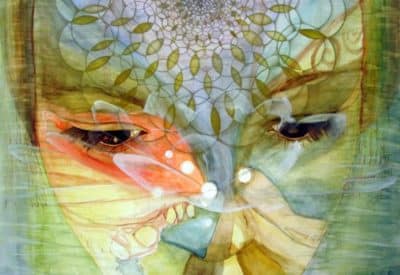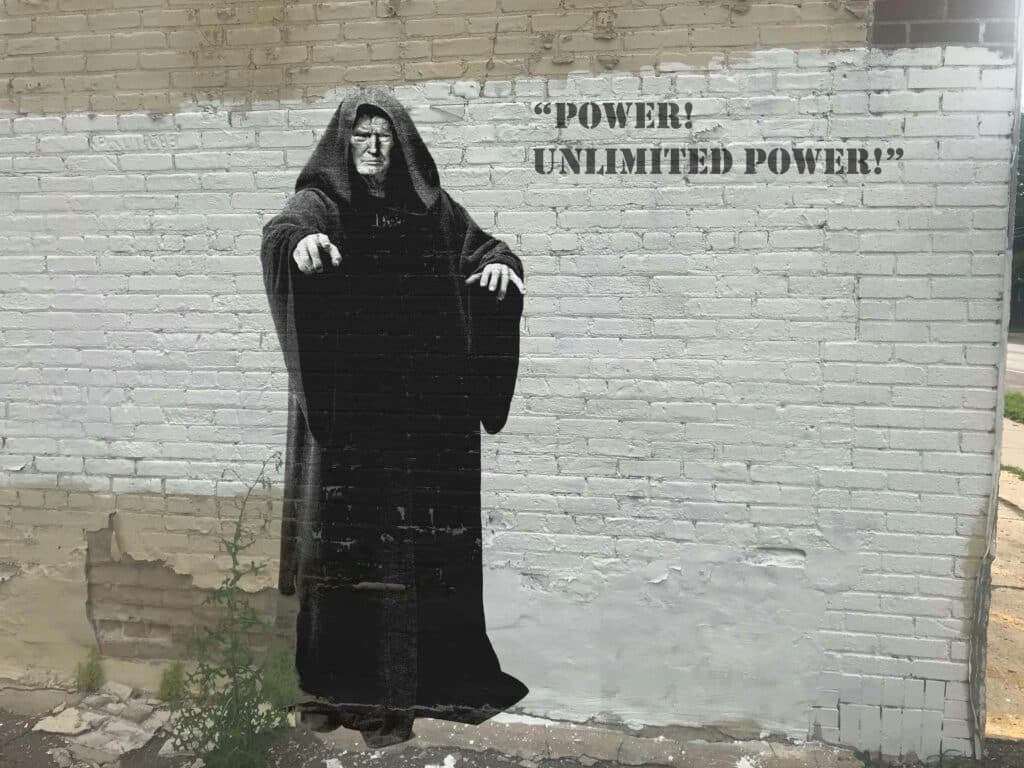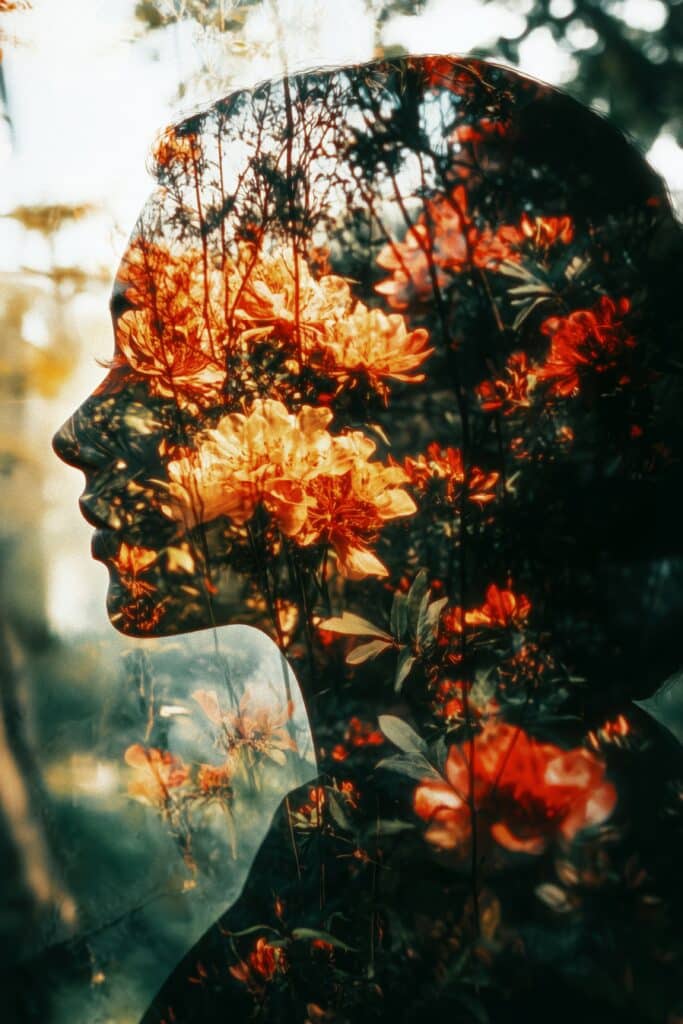Making Peace with Our Power and Releasing the “Pleaser”

Many women express this fear: “I’m afraid that if become successful, I’ll be all alone.”
I’ve spoken with women from numerous countries around the world who have expressed this verbatim. And some have reported a strange, overwhelming fear that their mother will actually die if they succeed. It may seem irrational or out of the blue. But it has roots in very real situations that happened very early in life. It’s important to understand this on a personal and cultural level because as we understand it, we release the hold of an ancient pattern that has kept women down for centuries (Bear with me, this is a longer post. You may want to grab a cup of tea for this one!)
We are NOT afraid of success. That’s a misconception. What we’re really afraid of is abandonment.
The “fear of success” indicates that earlier in life we learned to conflate success with loss.
Underneath the fear of success is the memory of the abandonment that we experienced in the past as children during the moments when our joy somehow triggered our mother/parents’ anger, fear or jealousy. That is how we learn to conflate our own personal joy with a loss of belonging.
The “fear of success” is an echo of this memory.
I don’t think we’re afraid that we’re “powerful beyond measure” as Marianne Williamson describes in her famous quote. I think the child within us is afraid of the permanent banishment that ownership of this vast power would imply.
There’s a scarcity consciousness that is intrinsic to our patriarchal culture. It’s the invisible backdrop to all our current problems. It’s so woven into the fabric of our society that it’s barely perceptible. It’s the belief that there’s always an “either/or.”
The deeper cause of this pervasive scarcity has its roots in individual lives over the centuries. The truth is that the first scarcity we ever experienced was the terror of feeling abandoned by the one person we needed to survive, our mothers (either momentarily or chronically).
Historically, we’ve lived in a culture that doesn’t take childhood fears seriously. We are a culture that largely dismisses children’s fears as insignificant and nothing to worry about. It’s true that from an adult’s perspective that things that terrify children are inconsequential to an adult. But our inability to take the extra step to empathize with what things feels like from a child’s perspective demonstrates how divorced most of us are from the pain of our own childhoods.
Parents cannot completely prevent children from ever experiencing moments of fear or aloneness. However, they can empathize with them consistently, so that over time, the child develops a a predominant, overall sense of safety. Empathy is key. Empathy is more possible from adults who grieved enough about their own history that they don’t avoid their child’s pain as a way of avoiding their OWN pain.
I repeatedly hear from women who take my online course that the more they embody the loving inner mother to their inner child, they find themselves much more present, empathic and emotionally available to their children, resulting in an increasingly rich connection between them.
On a cultural level, we have equated female power with abandonment.
This is a cultural echo of that original scarcity of feeling abandoned by mother. Broadly speaking, men have feared that women who are conscious of their power will abandon their roles as nurturers. And patriarchy has taught men to disown their own nurturing abilities, encouraging them to seek nurturing mainly through sex.
Society’s need for a subservient female, unaware of her power, is our deeper collective need to find a mother who won’t abandon us. It’s a projection of our traumatized inner children who are longing for an inexhaustible mother who isn’t coming. We have to give up this collective dream. She can only come from within. The inner mother emerges as we grieve and learn how to mother ourselves consistently. It’s a skill that can be learned. If we fail to grieve and learn to mother ourselves, we risk passing along the Mother Wound to the next generation.
Culturally, we need to grieve. Personally, we need to grieve. And the situations in the outer world reflect this mounting inner imperative to look at our own pain. There is an exciting evolutionary step within the Mother Wound –that is IF we listen to the call to go within and grieve. However, if we choose to continue to postpone the grief, we’ll continue to act it out and harm the earth. The more individuals do this work, the more the culture will transform.
On a personal level, success can remind us of our ability to trigger our mothers’ fears and the resultant threat of abandonment by her.
Did you ever hear any of these growing up?
- “Don’t complement her. She’ll get a big head.” (to others who complement you)
- “Stop looking at yourself.” (if looking at yourself in the mirror)
- “Who do you think you are? I’ll bring you down to size!”
- “Don’t complain, so many people have it worse than you.” (when expressing needs)
For women of past generations, success as a woman was equivalent to abandonment.
As little girls and young women, we were taught that our value comes from supporting others and diminishing ourselves in the process. We were taught that “good girls” don’t “shine too brightly.” We also saw how this belief damaged and depleted our mothers.
We learned to view our success as a betrayal of the unspoken rule to put pleasing others ahead of our own needs.
The aloneness that we fear when we imagine future success is an inner echo of the terrifying aloneness we experienced in the past as small children when, in our innocent joy, we unexpectedly triggered our mother/father/caretaker.
The good news is that the thing we fear most has already happened. We can never be abandoned to that degree again. As adults, we’ll never be that helpless, vulnerable or dependent again on others in the ways we were as children.
We may have experienced emotional withdrawal or physical abandonment or violence. Our conscious mind may not remember the details. Our nervous system remembers this clearly. And it throws up the warning signals of “fight, flight or freeze” when we allow ourselves to contemplate levels of success or happiness that were considered traitorous in our families.
Our freedom lies in our courage to grieve the traumatic aloneness we felt as children. The fear of success fades as we do, allowing us to step more freely into our potential.
The truth is that your value is not contingent on the ability of other people to see it.
The people in your life who ask you to shrink for the sake of their own insecurities rarely become capable of seeing your magnificence. This is an important one to take in. Usually, your shrinking only enables their own avoidance of themselves. Things radically shift when you realize that you are not losing anything when you cease striving for love from people who are simply incapable or unwilling to give it to you.
Have you ever felt the need to hide or downplay your success?
As women, we feel guilt based on the false assumption that it is our job to make people feel good all the time. If they don’t feel good all the time, we think it represents a failure on our part. Give yourself permission to put down this ancient guilt. It was never a true obligation.
We have to let go of this “pleaser” role in order to step into our full power.
The truth is that we cannot protect people from their own painful feelings. Distracting others from their pain doesn’t serve them. It only prolongs their suffering and postpones their healing.
The irony is that being a “pleaser” is not the same as being generous. It’s actually a form of feeding on other people in order to feel better about yourself. Are you avoiding your own pain by focusing on pleasing others?
There’s actually a boundary violation happening there. We have to see what we’re really doing when we seek to please others at all costs. We’re actually using people in order to feel our own value. It comes from a place of inner deprivation where you “feed” on the validation of others. (It’s heartbreaking to really take it in that there have been generations of women who felt they had no other source of validation except through pleasing others.)
Our attempts to validate our mothers or efforts to make up for the damage inflicted on them cannot undo the suffering they have experienced. Resist the urge to believe that suffering in the same way as your mother did is a form of solidarity with her. It’s not; it’s a form of inner oppression. We can only grieve and move forward.
Making peace with our power involves accepting the fact that our authenticity will inevitably trigger painful feelings in others. (And that’s OK. Really.)
When we stop over-functioning in our relationships, it releases enormous energy back to us to use for our own evolution. And it gives others their power back to process and use their own emotions for their own transformation. Triggers are keys to healing that belong to the person who is triggered–keys to a door which lies inside them. It’s their journey to use the trigger to unlock greater freedom in themselves. It’s their opportunity to take or not.
There’s a delicious kind of freedom in making mistakes, in being misperceived and in being disliked.
It’s delicious when you know that those things no longer have the power to diminish your self-love. When they happen, they may feel uncomfortable in moments, but they no longer take you out of your center. In fact, they begin to serve as opportunities to more effectively mother yourself and anchor even deeper into your truth.
This delicious freedom is NOT the same as being rebellious or oppositional simply for the sake of it. It is delicious because it is part of the freedom to be a full individual. An individual means the right to have all kinds of emotions and feelings that deserve respect, even if others don’t agree. Being a true individual was a freedom that was not afforded by most of our grandmothers and great-grandmothers. Claiming the right to be an individual could have meant injury, death or banishment. Staying small was indeed a way to be safe and out of harm’s way.
The truth is that the bigger change we want to experience in our outer lives, the bigger the inner change that must take place first. To make these big, lasting changes, we must go to the point of causation, to our past where painful patterns were put into place in our childhoods. In grieving the cause, we open up new horizons that were impossible before. We become generational change agents!
There will be discomfort when we cease deriving our sense of value from pleasing others.
We’ll be uncomfortable because we’re releasing an ancient pattern that feels so familiar. And others will be uncomfortable because the buffer between themselves and their “stuff” will be gone. They will be forced to be in contact with their own pain. Your ability to endure the discomfort of this change is critical. Remember that this discomfort is temporary. The important thing is to withstand the guilt feelings that may arise and not allow them to direct your behavior. Use the guilt as a stimulus to more fully affirm yourself.
With consistency, the discomfort will give way to a profound sweetness of being, of feeling the joy of belonging to yourself. As a woman radiating with the permission to be her full self, you offer a powerful “frequency of possibility” for others. You become the fulfillment of an ancient dream of your foremothers—a woman who is an individual, a woman unto herself…
Art credits: Peace Amongst The Chaos by Jessica Joy




